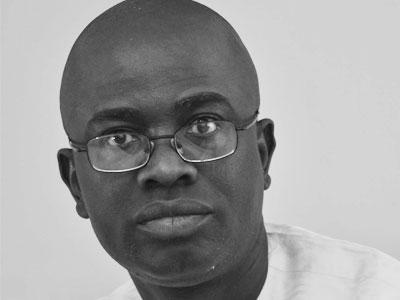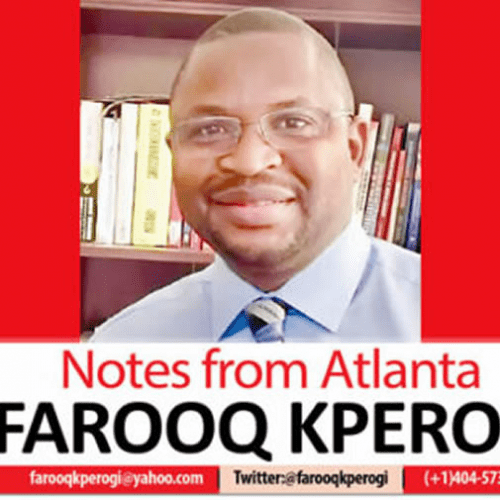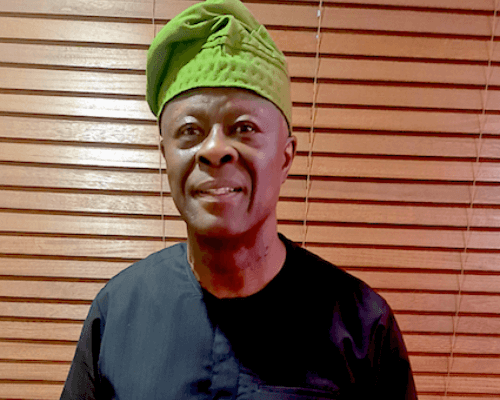In the fiasco arising from the attempt to execute a 2012 supreme court judgement in Magodo, Lagos, some of the issues that have been thrown up include the legacy of impunity by the military, sanctity or otherwise of rule of law in Nigeria, the ease with which the police could be deployed to serve private interest, the awkward nature of our federal structure and abuse of office at the highest level of government. What is particularly unfortunate is that we have a police force that readily offers itself to be used by power mongers. Less than two weeks after their men invaded a church in Imo State like bandits to abduct a man who could easily have been invited were charges legally preferred against him, we now have a situation in which those who are paid to enforce the law are unwittingly becoming instrument for instigating violence in Lagos.
The man who needs to be careful in all these is the Attorney General of the Federation and Justice Minister, Abubakar Malami, SAN. He, most people believe, is behind the mago-mago (Hausa word with common usage in Yoruba, popularised by former electoral umpire, Prof Humphrey Nwosu, which depicts an unwholesome situation) currently playing out in Magodo. In their petition to the Lagos State House of Assembly, the embattled Magodo GRA Phase II residents stated: “The Attorney General of the Federation is destabilising Lagos State by using his office to back this illegality as a meddlesome interloper and the instrumentality of state – the Nigerian Police Force and their illegal Court Bailiffs, to scuttle ongoing settlement between the Lagos State Government, Magodo GRA 2 Residents and the Judgement Creditors.”
Ondo State Governor, Rotimi Akeredolu, SAN, yesterday went a step further to query our federal structure, on behalf of his Southwest colleagues. “An arrangement, which compels the governor of a state to seek clarifications on security issues in his jurisdiction from totally extraneous bodies or persons is a sure recipe for anarchy,” Akeredolu reasoned. “We, on our part, will continue to interrogate the current system, which treats elected representatives of the people as mere prefects, while appointed office-holders ride rough shod over them as Lords of the Manor.”
I am for the rule of law and cannot lend support to any government that trampled on the rights of ordinary citizens as Lagos State did under the military in the eighties. But what the Supreme Court judgement seeks to enforce is justice for the Shangisha landlords by way of reparation for their illegally acquired land. That cannot be a license for anybody to take over or demolish houses legally built by people who bought land from government. Two wrongs do not approximate to a right. If Supreme Court gives a judgment and the state disobeys, the next action is to file contempt proceedings, not resort to self-help by importing policemen from Abuja to Lagos to chase people out of their houses. That is a recipe for anarchy and Malami and fellow travelers ought to know that if indeed their interest in this matter is about public good.
I understand the technical point that since Lagos is a party in the dispute, Governor Babajide Sanwo-Olu should not have been at Magodo to make the order he did to the errant police officer. But we should also not forget that Sanwo-Olu has a responsibility not only for law and order in Lagos but also for public peace. Since the only way this matter can be successfully resolved is through mediation, the governor should be at the centre of such efforts. Whatever may therefore be their motivation, it is dangerous for anybody to sit in Abuja and be encouraging anarchy in Lagos!
All factors considered; Sanwo-Olu’s quick intervention has restored a process of amicable resolution that will ensure due compensation for the Shangisha landowners. Chances were that the presence of the Abuja police team and its hired thug bailiffs could have led to a bloody breakdown of law and order in Magodo, since no rational landlord would watch their legitimately acquired house being demolished without fighting back. Therefore, it ought to concern the rest of Nigerians that a police force faced with widespread insecurity across the nation can draft a huge contingent to Lagos for over two weeks to enforce a doubtful mandate. Clearly, the Magodo matter has once again exposed the hollow reign of narrow interest in today’s Nigeria.
Buhari and the Budget Palaver
President Muhammadu Buhari last week signed into law the 2022 Appropriation Bill by reading from the book of Lamentations. As in previous years, the president expressed concern over alterations made to the budget by the National Assembly. These changes, according to him, “are in the form of new insertions, outright removals, reductions and/or increases in the amounts allocated to projects,” while ‘‘provisions made for as many as 10,733 projects were reduced while 6,576 new projects were introduced into the budget by the National Assembly.”
Distortions by the National Assembly on allocations for critical projects, the president further warned, “may render the projects unimplementable or set back their completion.” He added that most of these projects “relate to matters that are basically the responsibilities of states and local governments, and do not appear to have been properly conceptualised, designed and costed. And many more projects have been added to the budgets of some MDAs with no consideration for the institutional capacity to execute the additional projects and/or for the incremental recurrent expenditure that may be required.’’

Unfortunately, Buhari’s aides were quick to walk back his misgivings over the manner the budget was distorted. But this is a problem we must confront if we are to develop our country. What the ‘clarification’ reflects is a lack of presidential conviction and lawmakers have been preying upon it to considerably rewrite the budget again this year. This also explains why many Nigerians have become rather cynical of presidential pronouncements that too often read like hollow excuses.
When in 2018, Buhari accused the National Assembly of inserting projects “to the budgets of most MDAs with no consideration for institutional capacity to execute them or the incremental recurrent expenditure that may be required,” (I hope readers can see the similarity in that statement and the current one), he was challenged by a member of the senate committee on appropriations, Rafiu Ibrahim. Senator Ibrahim had wondered why the president failed to confront the National Assembly leadership during budget sessions with them. “Why did he sign? He shouldn’t have signed. So, let him bring those insertions out. He just likes to make drama. He should have confronted us with those (insertions), call the leadership of the National Assembly and confront them,” said Ibrahim. “He likes to play to the gallery. He should have withheld his assent.”
The president did not call the bluff of the National Assembly then and it is interesting that after more lamentations as to how lawmakers have rendered the 2022 budget difficult to implement, his aides are blaming imaginary “people who are trying to create a fiasco between the two arms of government on account of the budget.” Yet, as I have consistently argued in recent years, the dire economic situation has pushed the nation in the direction of an aggressive tax drive, with the possibility of removing fuel subsidy this year. Authorities should also be aware that such funds cannot continue to pay for ill-defined ‘constituency projects’. We must come to terms with the reality that the fundamentals of our economy remain suspect and fixing things ought to start with the national budget, especially when we are essentially running the country with borrowed money.
I have said it before and I am happy that many are coming to terms with the reality of the current regime of “envelope system”. Simply determining spending categories, i.e. Presidency, Education, Agriculture etc., rather than spending priorities, cannot serve our nation. With resource allocation made to resemble a distribution of spoils rather than a collective plan for an integrated whole, it is difficult to blame National Assembly members for the insertion of projects when they are merely aping what they know members of the executive did with the proposal submitted to them. But we cannot continue like this if we expect to develop like other nations.
Ordinarily, the national budget is the financial plan of a country whose major objective is to reduce inequalities by mobilising and allocating resources for investment in the public sector. The ultimate end in societies like ours should be to facilitate economic inclusion by lifting as many citizens as possible out of poverty through programmes and projects that are well planned, properly costed, and targeted. It is not wrong for lawmakers to make inputs into projects as principal stakeholders, but their intervention should come by way of negotiations with the executive during budget preparation. Not wait to insert their own projects during the appropriation process in a manner that renders the entire document meaningless. That is the problem we must deal with.
In my book, ‘Power, Politics and Death’, I highlighted what happened with the 2008 budget which the late President Umaru Musa Yar’Adua was reluctant to sign over what he considered extreme meddlesomeness of the lawmakers. The main contention at that time was that a review of the 2008 Appropriation Act as passed by the National Assembly revealed that legislators had virtually rewritten it by introducing clauses in contravention of the principle of separation of powers. Several projects were included with costs arrived at by guess work. “In summary, the legislators unilaterally initiated projects for which they provided money without any input from the executive which ordinarily should design, cost, execute and supervise such projects” I wrote.
Determined to deal with the problem, the late President Yar’Adua asked his Attorney General and Justice Minister to outline issues for which he would seek judicial interpretation at the Supreme Court. Although he eventually backed down from that option, remaining unresolved issues include whether in the exercise of its constitutional power to approve yearly budget estimates submitted to it by the executive, the National Assembly could unilaterally increase the revenue benchmark, insert projects not included by the executive and proceed to appropriate money beyond the estimates submitted by the president. That we are still talking about the same problem 14 years after reflects the lack of accountability that drives public finance in Nigeria.
The essence of legislative oversight is to detect and help eliminate areas of waste within public agencies, make government accountable to the people, evaluate the impact of policies and programmes on the society while ensuring that all these are in promotion of the public good. But the lawmakers have practically shunned that responsibility, although it is easy to blame them for inserting constituency projects when they are also aware that ministers, heads of parastatals and top bureaucrats (who did not go through the rigour of any election) also insert many projects for themselves as well as their principals. One only needs to check the number of federal government projects that have gone to Daura in the past six years! When a budget is reduced to sharing scarce resources between and among powerful interests as it has become in Nigeria, how can a society develop?
Since the president and the National Assembly have kissed and made up over the ‘un-implementable’ 2022 budget, there is nothing more anybody can do. Yet, until the budget becomes a serious planning instrument, national development will remain a mirage. In a very revealing Twitter post in 2019, Mr ‘Laolu Samuel-Biyi made a poignant point: “If you want to keep hope alive in Nigeria, don’t look at the budget”.
The Essential Bashir Tofa
Exactly a month ago, I found on WhatsApp a photograph of the now-deceased Alhaji Bashir Othman Tofa (ABOT) taken abroad in the seventies along with other equally young people. I forwarded it to him, and he sent a crisp reply. “That day, I forgot at home my pipe and neck gold chain with a miniature elephant horn,” he wrote, adding a laughter emoji. “By the grace of God, we will meet and have that lunch, whenever I am in Abuja. I hardly visit, except for important meetings with friends I trust.”
Sadly, we will never have THAT lunch!
Following his death on Monday, I have had to reflect on my relationship with Tofa and the power of social media. Having covered the transition to civil rule programme of General Ibrahim Babangida, the name Tofa was not strange to me, but I never encountered him in person. And then about ten years ago, I found myself on an Internet chat group to which Tofa also belonged. He reached out to me, and we became ‘friends’ such that if he had a press statement he wanted to release or a speech he needed to deliver, he would first share with me for my opinion. And he would ask me to help circulate afterwards. This became a routine until June 2018 when President Muhammadu Buhari decided to honour the late M.K.O. Abiola and designate June 12 as Democracy Day.
Tofa was a principal actor in that drama, being the National Republican Convention (NRC) presidential candidate defeated by Abiola before the result was annulled. He felt slighted by Buhari’s decision and the draft statement he sent for my review did not sit well with me. As a former Concord staff (owned by the late Abiola) who holds a strong position on the June 12 crisis, I felt scandalized by Tofa’s stance. Understandably, the tone of my reply to him was quite harsh.
About two hours later, Tofa sent me this mail: “I attach herewith my revised press statement for action as discussed in my earlier email. The photograph to be used is also attached herewith again. Thank you very much for your cooperation on this matter.” I found it gracious of him to amend his statement in order to accommodate some of my views. And he did not appear offended by my brash response. From that day, my respect for the late Tofa went a nudge higher. Even though we never met in person, we chatted animatedly on WhatsApp, and I found his sense of humour quite exhilarating. On the chat group where we first met, Tofa was generally regarded as a peacemaker and earned the sobriquet, Elder ABOT.
Meanwhile, in the past few years, the late Tofa continued promising that whenever he was in Abuja, he would arrange for the two of us to finally get together for lunch. Somehow, it never worked out because on occasions when he was around, I was out of town. And then on 17th November last year (just about seven weeks ago), I was in Kano for the burial of Alhaji Sani Dangote. While people milled around at the Sarari Graveyard, I saw Tofa standing a few metres away, for the first time in person. But because I was seated at the back of the coaster bus, I couldn’t come down to greet him. That unfortunately was the first and last I saw Tofa in person.
However, Tofa and I may not have had the much-promised lunch where we could have engaged more personally, but in the virtual interactions we have had over the years, I feel I met the essential Tofa, a genuine Nigerian patriot and complete gentleman. May God grant him eternal rest and comfort the family he left behind.



















